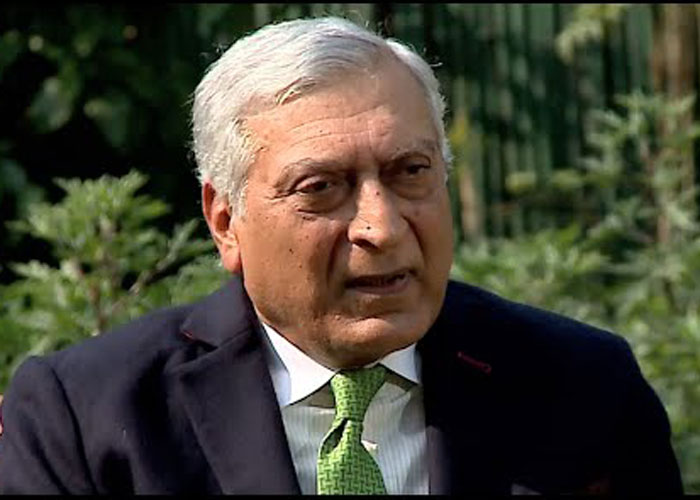
Biden presidency will not affect US-India ties: Former foreign secy
Come January 20, Joseph Biden will be sworn in as the 46th President of the United States, and while the future leader has his role cut out on the domestic front, all eyes will be him on the kind of relationship he forges with India.

Come January 20, Joseph Biden will be sworn in as the 46th President of the United States, and while the future leader has his role cut out on the domestic front, all eyes will be him on the kind of relationship he forges with India.
Despite apprehensions about future US-India relations under Biden’s presidency given his ideological differences with predecessor Donald Trump, former foreign secretary Kanwal Sibal says the new US presidency will not affect India’s ties with America even though minor nips and tucks may be required along the way.
Also read: To pressure Biden, Trump’s ‘secret’ paper reveals ‘role for India’
A positive sign of an unwavering India-US relationship is Biden’s assurance to go slow on trade deals, his promise to relax norms pertaining to visas and US need of India’s friendship due to the latter’s strong presence in the Asia Pacific region, Sibal says in an interview with Mint.
Despite concerns among US Democrats over alleged human rights violation in India, Sibal says the Biden presidency cannot dilute the ties of the United States with India, as it is the “only Asian country that can independently counter China”.
“In the larger global scenario, particularly in the Indo-Pacific region, US concerns about countering China’s power which directly affects America’s global role will require closer strategic understandings with India,” he tells Mint.
When Biden takes over, he will have a lot of his plate. One of the primary tasks will be to address the massive polarisation that the US is witnessing, the latest example being the shocking siege of Capitol Hill by pro-Trump supporters a few days back, which led to the death of five people. Asked if such domestic concerns will divert the attention of Biden, giving China a “free run in its neighbourhood”, Sibal says it is highly unlikely.
He says despite political concerns, agencies like the Pentagon and CIA will look after foreign policymaking and efficiently distinguish “domestic political party concerns from core foreign policy issues”.
“The US, despite being distracted at home, has enormous military capacities to advance its foreign policy goals. That the Democrats now have majority in the House (of Representatives) and the Senate will enable them to successfully pursue their interests globally where they are most critical. The Biden Administration has already announced that it will focus on its East Asian allies, which means China will be countered in the western Pacific,” he says.
Unlike Trump, Sibal says Biden will be more traditional in his pursuit of US policy goals, including its relation with China and will develop and “understanding with Europe on how to handle China economically”.
Also read: US Congress certifies Biden’s electoral victory over Trump
When asked if US ambassador Kenneth Juster’s fears about India’s Atmanirbhar Bharat programme not being compatible with its aim to integrate with global supply chains, will prove true, Sibal says the particular concern is more about the lack of clarity in conducting business rather than the intent of the parties concerned.
“There are some concerns about the scope of the Atmanirbhar Bharat strategy because some critics have raised fears that it could be a return to the past licence raj of some sorts. The other concern is whether the desire for self-reliance which is acceptable in the broader sense for an economically rising power like India may in implementation at various levels by the bureaucracy exceed intentions as the exact scope and definition of this strategy are not clear. This may result in creating additional difficulties in the areas of trade and investment. The concerns expressed are about the lack of clarity and about how things will shape and not the intent,” he says.
Also read: Biden picks retired Army General Lloyd Austin as Defence Secretary
With Biden promising to be more open in regards to the H1B visa, Sibal says the decision has been possible because he is supported by California-based American technology companies, who in turn have called for more flexible policies on the visa category.
While the Trump administration capped the number of employment-based visas at 140,000 per annum and suspended H1B visas until the end of 2020 to protect American workers, Biden has promised to raise the number of highly-skilled visas as part of comprehensive immigration reforms of his administration.
“India would be under less pressure in this area than under the Trump administration which had a narrower view of this area of cooperation with India,” Sibal says.
Meanwhile, it is being reported that India may urge Biden to revoke the new rules imposed on the H1B visas by the Trump administration.

